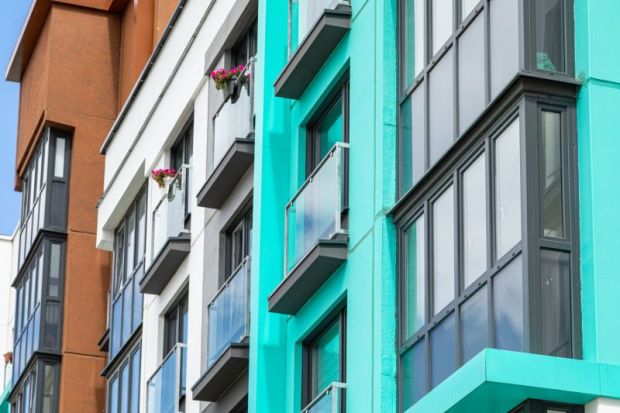Most UK universities lost between a quarter and a half of their usual annual income from student and conference accommodation and catering as the Covid crisis hit last year, new figures have suggested.
Detailed data on the sector’s finances from the academic year 2019-20, just published by the Higher Education Statistics Agency, show a handful of institutions lost close to two-thirds of such revenue.
Income from residence and catering operations represents a small but significant share of university’s overall income, totalling £1.8 billion last year or about 4 per cent of all revenue.
The introduction of the first Covid lockdowns in the UK in March 2020 saw many of these income streams disrupted as students were given accommodation refunds or waivers and academic conferences were cancelled.
It led to an overall drop of more than £500 million in residence and catering income for 2019-20, compared with 2018-19, when the £2.4 billion in revenue represented more like 6 per cent of total income.
The University of Exeter was among those hardest hit last year, seeing its residences, catering, conference and retail income fall by almost £11 million or 43 per cent in 2019-20.
Andrew Connolly, chief finance officer at Exeter, said that compared with other areas of university activity, the first Covid lockdown had “the biggest and most immediate impact” on such income when it came to university finances.
He said that it was possible that campus-based universities may have suffered more because of the extent of their on-site facilities for student accommodation and conferences.
But he also said that in his institution’s case, it had taken an early decision in the “white heat” of the first lockdown to waive accommodation payments early given government advice at the time that students should return home.
“This meant we lost rental income from the last two weeks of term two as well as the whole of term three,” he said, adding that he thought many other institutions took the decision later due to financial concerns.
“Ultimately, while this cost us more, we took the view that this was the right thing to do to protect the longer-term value of the student relationship.”
As well as the hit to revenue from residences and catering, the Hesa data show that research grants and contracts was another income area that was heavily disrupted by the first lockdown.
Some research-intensive universities recorded a drop in research grant income of more than 10 per cent, which may partially have reflected the halting of some projects as the pandemic hit.
However, Mr Connolly also pointed out that the impact of the pandemic on research income was “more tricky to unpick” as finances recorded in 2019-20 reflected how research grants won in previous years were spent.
He said that Exeter, whose research income actually rose 7 per cent last year, had been on a “strong upward trend for a number of years” on research awards, although its growth in 2019-20 was slightly lower than a forecast 11 per cent due to the effect of the first lockdown.
Register to continue
Why register?
- Registration is free and only takes a moment
- Once registered, you can read 3 articles a month
- Sign up for our newsletter
Subscribe
Or subscribe for unlimited access to:
- Unlimited access to news, views, insights & reviews
- Digital editions
- Digital access to THE’s university and college rankings analysis
Already registered or a current subscriber? Login








